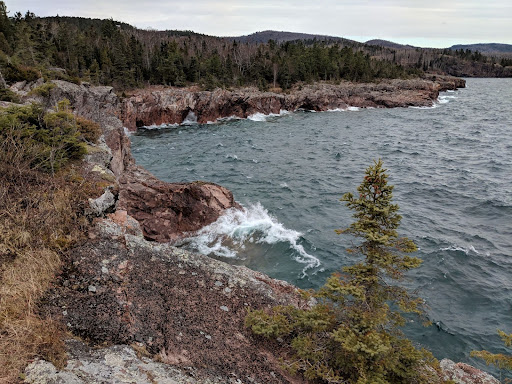
- Details
- By the International Joint Commission
For generations, Indigenous peoples have stewarded the Great Lakes ecosystem, living in kindred relation with the waters for generations. Environmental and water quality issues challenge this relationship, prompting efforts by Indigenous communities to advocate for conservation and sustainable practices that honor both their ancestral ties and the ecological health of the Great Lakes. Tribal, First Nations and Métis governments and organizations are critical to protecting the lakes and their waters, a goal shared by the International Joint Commission (IJC).
Restoring, protecting and enhancing the Great Lakes is a main goal of the IJC, an independent, binational and impartial agency that advises the governments of Canada and the United States on their shared waters. Part of the IJC’s work is to promote the health of Great Lakes waters as prescribed in the Great Lakes Water Quality Agreement.
As part of its responsibilities under the Agreement, the IJC recently released its 2023 Third Triennial Assessment of Progress on Great Lakes Water Quality, commonly known as the “TAP Report.” The report culminates with three recommendations for the federal governments.
First, the IJC recommends that the US and Canadian federal governments ensure that First Nations, Métis and Tribal governments are full, active partners in the Great Lakes Water Quality Agreement review process that will take place following the release of this TAP report, and any subsequent reviews. Such collaboration will better empower Indigenous engagement and leadership on Great Lakes water quality issues. This work should be done transparently and in a mutually agreed upon way and is critical to ensure Indigenous voices are involved on their own preferred terms.
The report also supports the continued incorporation of Traditional Ecological Knowledge into work on Great Lakes water quality issues. “We call this knowledge the Indigenous ways of knowing,” says the IJC’s US Commissioner Lance Yohe. “And we have identified opportunities for the two governments to expand the development of more culturally relevant policies and programs that are part of the Great Lakes Water Quality Agreement.”
The IJC also recommends that the US and Canadian federal governments work with partners, including Indigenous governments and organizations, to develop basinwide climate resiliency goals that can be actioned by all levels of government. Additionally, the United States and Canada should support and proactively participate in the ongoing development of a 10-year Great Lakes Science Plan. While the plan is currently under development, a key element is the incorporation of cultural perspectives, including Traditional Ecological Knowledge.
 To emphasize the importance of building strong relationship, the Gordie Howe International Bridge, the future Windsor-Detroit crossing, is featured on the cover of the 2023 TAP report. Image credit: Andrew Dean Detroit
To emphasize the importance of building strong relationship, the Gordie Howe International Bridge, the future Windsor-Detroit crossing, is featured on the cover of the 2023 TAP report. Image credit: Andrew Dean Detroit
The IJC formally released this report with a virtual event, which can be viewed online.
The IJC’s recommendations and the full report were sent to the federal governments, and are now making their way to states, provincial and local governments, watershed authorities, academics and citizen-led advocacy groups that do this work every day.
Ultimately, the federal governments decide if and to what extent these recommendations will be implemented. That said, the TAP report calls for a range of organizations and individuals to be involved. Everyone has a role in protecting the Great Lakes.
For more information, visit IJC.org.
For questions or comments about the TAP report or to share your work toward more swimmable, drinkable, fishable Great Lakes, please email [email protected].
Help us defend tribal sovereignty.
At Native News Online, our mission is rooted in telling the stories that strengthen sovereignty and uplift Indigenous voices — not just at year’s end, but every single day.
Because of your generosity last year, we were able to keep our reporters on the ground in tribal communities, at national gatherings and in the halls of Congress — covering the issues that matter most to Indian Country: sovereignty, culture, education, health and economic opportunity.
That support sustained us through a tough year in 2025. Now, as we look to the year ahead, we need your help right now to ensure warrior journalism remains strong — reporting that defends tribal sovereignty, amplifies Native truth, and holds power accountable.
 The stakes couldn't be higher. Your support keeps Native voices heard, Native stories told and Native sovereignty defended.
The stakes couldn't be higher. Your support keeps Native voices heard, Native stories told and Native sovereignty defended.
Stand with Warrior Journalism today.
Levi Rickert (Potawatomi), Editor & Publisher
